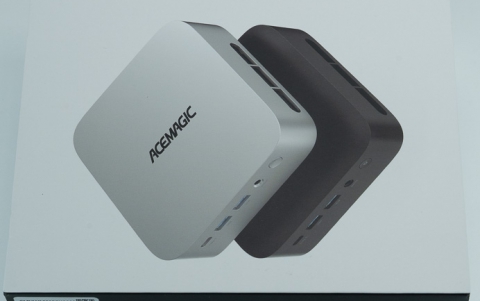Samsung 850 Pro SSD review
7. AS SSD benchmark
We move on with the AS SSD benchmark, which contains five synthetic as well as three practical tests. The synthetic tests determine the sequential and the random read / write performance of an SSD. These tests are carried out without using the operating system's cache. The Seq-test measures how long it takes to read and write an 1GB file. Most importantly, this sequential benchmark uses incompressible data for all of its transfers.
The 4K benchmark tests the read and write performance for random 4K blocks. The 4K-64-THRD-test corresponds to the 4K procedure except that here the read and write operations are distributed on 64 threads:
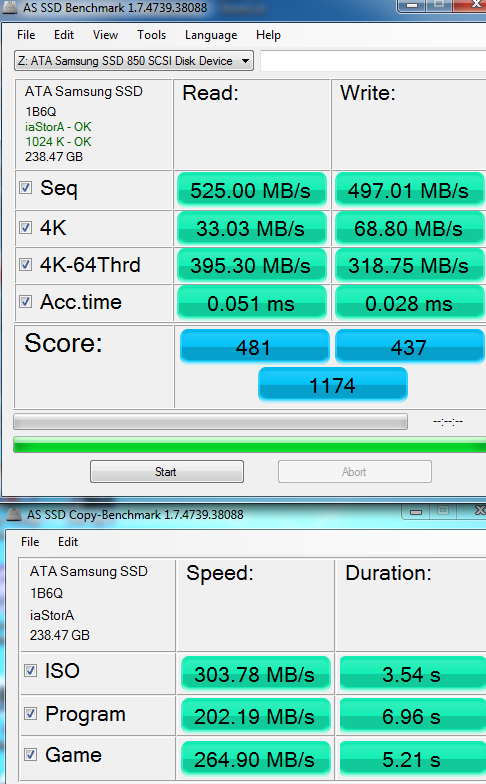
The 850 PRO's performance in sequential reading with incompressible test was the highest we have observed from an SSD so far, at 525 MB/s. The same applies for sequential writing, where the drive wrote the incompressible files at 497.01 MB/s (average).
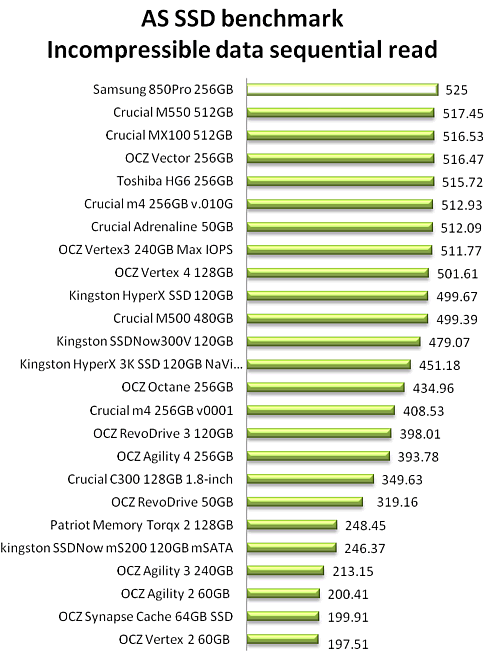
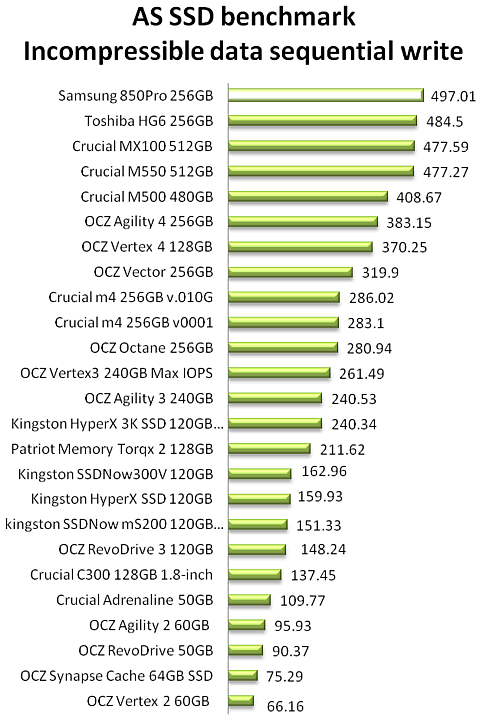
At the 4K random reading tests, the Samsung SSD reached the top of the chart below, with an average reading speed of 33.03 MB/s.

The drive was slower at the 4K random writing tests, giving 68.8MB/s:
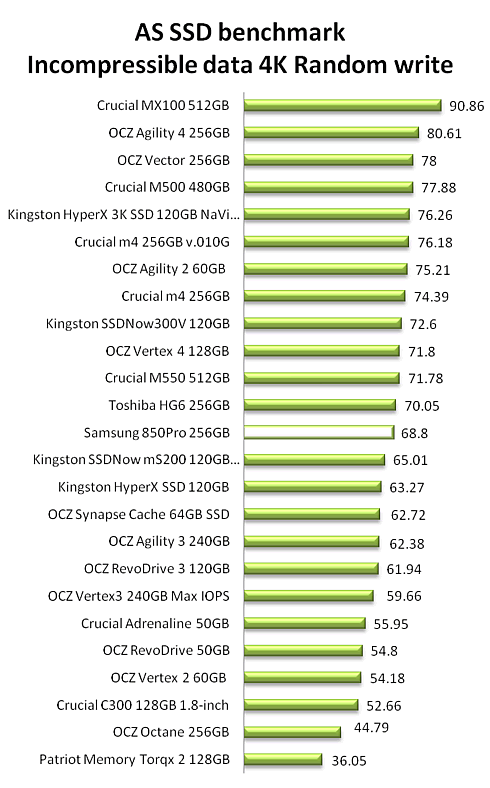
Multi-threaded requests for random reading of 4K incompressible files were not an issue for the Samsung 850 Pro 256GB SSD, ranking first in the read test and second in the write test, following closely the Crucial MX100 512GB SSD:

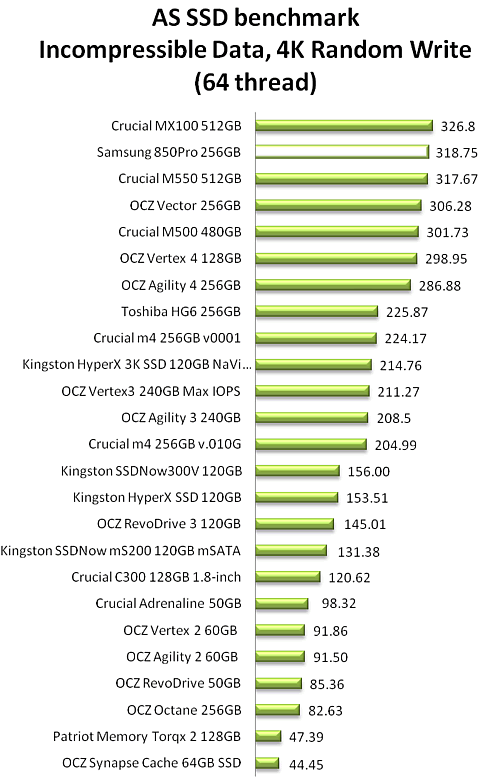
In the following graph you see how the Samsung SSD drive reads and writes files, which have been partially of fully compressed. It is obvious that the both reading and writing speeds are pretty stable and do not depend on level of file compression:













